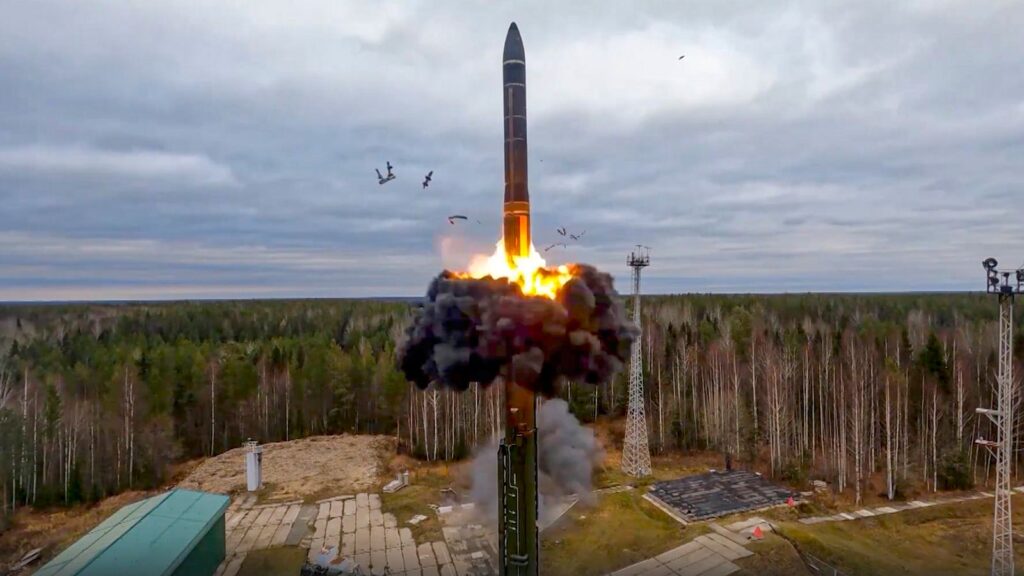A Russian analyst and nuclear weapons expert has given his thoughts on why he thinks Russia is unlikely to use an intercontinental ballistic missile (ICBM) against Dnipro this morning, despite reports from the Ukrainian Air Force. shared.
Pavel Podvig, a researcher at the Moscow Institute of Physics and Technology’s Center for Arms Control Research, said using intercontinental ballistic missiles against such a close target “doesn’t make much sense.”
“The distance from Kapustin Yar to Dnipro is about 800 kilometers. It’s not an intercontinental distance,” he said.
ICBMs are classified as ballistic missiles that can fly over 5,500 km.
Initial reports from Ukraine indicated that the missile used was an RS-26.
However, Podvig points out that Russia’s RS-26 missile program went “dormant” in 2018.
“While we cannot rule out the possibility that the RS-26 was removed from ‘retirement’ due to the attack, this means that Russia has had these missiles in storage for almost 10 years,” he said. said.
“It’s not impossible, but it’s rather unlikely.”
He also noted that many intercontinental ballistic missiles have a minimum range that they must fly.
There was also no suggestion that the Russian government notified Washington of the attack in advance, as required by the terms of the 1988 U.S.-Soviet agreement.
“The agreement provides for at least 24 hours’ advance notice of the expected date, launch area, and area of impact for the launch of an intercontinental ballistic missile (ICBM) or SLBM. The agreement will enter into force on the date it is signed. ”
U.S. Department of State, ICBM and SLBM Notification Agreement
Mr. Podvig concluded his thoughts by saying: “I would encourage people to remain calm and not automatically assume that ‘intercontinental’ is inherently and immediately dangerous.
“But this should be taken seriously. Everyone should be careful about making claims, sending and interpreting signals.”



